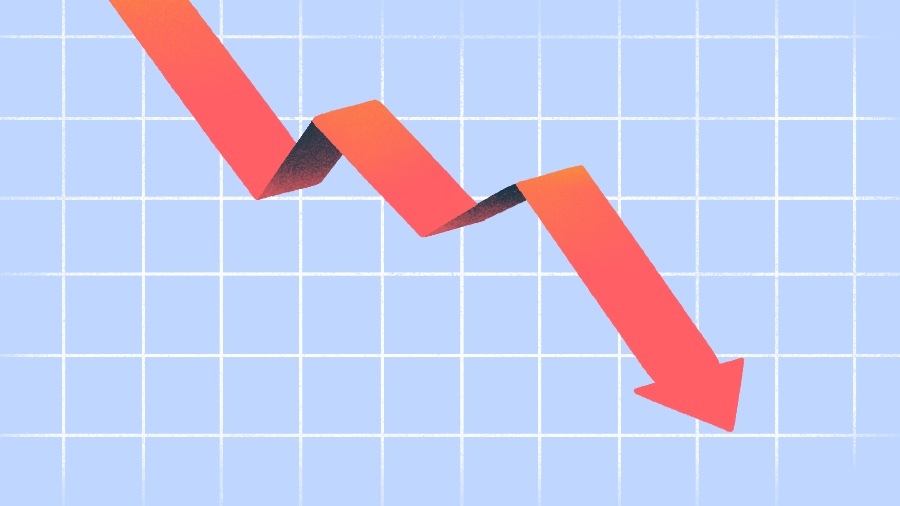Link to original article: The List Of Big, Losing Startup Acquisitions Grows Longer
No investor sets out with the intention to buy high and sell low. However, that’s often how deals turn out, particularly pricey startup acquisitions carried out under much frothier market conditions.
In recent weeks and months, we’ve seen increasing evidence of this money-losing dynamic at work. Public companies that bought startups at prevailing valuations a year or more ago are now selling those assets at steep writedowns. Others are holding on, but with big losses on the books.
You don’t have to look back far for cautionary tales. In the past couple weeks, we saw at least two examples of big-ticket purchases that worked out poorly.
First, Uber disclosed on April 10 that it agreed to sell just over half its stake in ride-hailing platform and “super app” Careem to Emirates Telecommunication Group for $400 million. A disappointing return, to say the least, considering that Uber paid $3.1 billion to acquire Dubai-headquartered Careem over three years ago.
Then, on April 13, Walmart disclosed that it is selling online menswear retailer Bonobos to brand management firm WHP Global and fashion retailer Express for $75 million. That’s a lot less than the $310 million the retail giant paid for it in 2017.
Other acquirers who bought during boom times have seen larger or similarly sizable losses, both realized and unrealized. Below, we look at what appear, in retrospect, to be some of the most overpriced purchases of the past few years.
Teladoc and Livongo
The pandemic drove a sharp rise in telehealth adoption, as patients and providers shifted consultations online to reduce in-person contact. For a while, publicly traded companies tied to telehealth were flying high.
Teladoc Health, a virtual care provider that went public in 2015, was one of them. Its shares more than tripled in value from late 2019 to early 2021.
Market conditions looked especially favorable in August 2020. That’s when Teladoc announced an agreement to acquire Livongo, provider of a tech-enabled platform for managing diabetes and chronic conditions, for $18.5 billion in cash and stock.
Things didn’t work out as hoped. Teladoc shares are down over 90% from their 2021 peak. Its current market cap of around $4.2 billion is less than a quarter what it paid for Livongo two and a half years ago.
Square and Afterpay
When Block disclosed in August 2021 it would pay $29 billion in stock to acquire Afterpay, the Australia-headquartered buy now, pay later platform,looked like a pricey deal even by the high-flying standards of the time. Fast-forward to today, and it looks exponentially more extravagant.
You see, when Block (formerly Square) announced the deal, it was trading at over 4x its current share price. Today, with fintech shares deflated, Block’s market cap is around $38 billion.
However, Block didn’t actually pay the initially proposed price. Per its 10-K, the purchase closed in early 2022 for $13.8 billion in stock. That’s less than first anticipated, but still pricey considering that Afterpay had never been profitable and that Block shares have since roughly halved in value.
Just Eat Takeaway and Grubhub
Sometimes mergers turn out a little like big, late-night food orders — expensive, and not quite good enough to justify the cost.
This seems to be the case for European food delivery service Just Eat Takeaway, which shook up the space in mid-2020 when it announced plans to acquire U.S.-based Grubhub for $7.3 billion.
The deal didn’t quite deliver on its promise. Today, the combined company has a market cap around $3.5 billion — and it’s also not profitable.
Carvana and Adesa
A few quarters ago, the combination of low interest rates and tight new car inventory contributed to a booming market for pre-owned vehicles. Today, with borrowing costs sharply higher, used car prices are on the decline.
That has not been a positive development for Carvana, the e-commerce-oriented used car seller known for its tall, cylindrical vehicle towers. Its shares are down roughly 97% percent from their 2021 peak.
A year ago, shares were well below peak but still much higher than they are now, when Carvana announced its $2.2 billion acquisition of car auction service Adesa. Today, Carvana’s market cap of $1.6 billion is actually less than the initial cost of that deal.
Uber and Careem
When Uber completed its acquisition of Middle Eastern ride-hailing and payment platform Careem three years ago for $3.1 billion, valuations for the space were a lot higher.
Since then, things have come down. Just how far down became clearer last week when Uber disclosed that it agreed to sell just over half its stake in ride-hailing platform and “super app” Careem to Emirates Telecommunication Group for $400 million.
Walmart and Bonobos
Seems like every generation of startups includes a few with ambitions to reinvent the retail experience. Menswear-focused e-commerce upstart Bonobos, founded in 2007, was one of these.
The New York-based company pulled in over $125 million in venture funding before selling to Walmart in 2017 for $310 million. That’s a lot more than the $75 million Walmart said it is getting for the company through a sale to brand management firm WHP Global and fashion retailer Express.
Illustration: Dom Guzman

